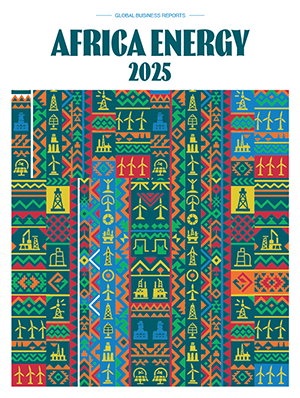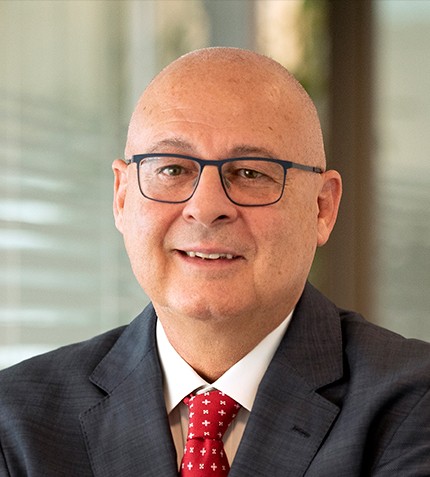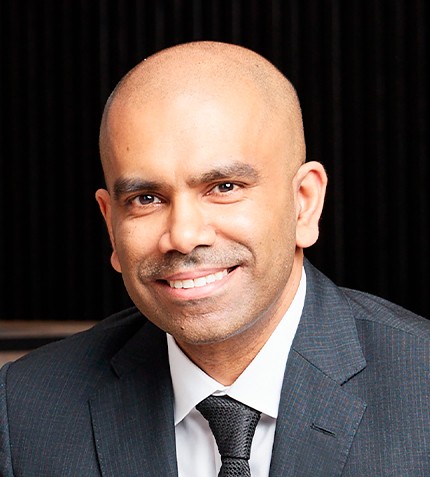
"Indigenous companies are totally focused on Nigerian assets, meaning we can allocate capital and talent to projects on a long-term basis."
RELATED PUBLICATION
ARTICLES FROM THIS PUBLICATION
Roger Brown
CEO, SEPLAT ENERGY
Can you introduce us to Seplat Energy?
Seplat Energy is Nigeria's leading independent energy company, a position we've solidified with our recent acquisition of Mobil Producing Nigeria Unlimited (MPNU).
How has Seplat Energy’s upstream portfolio evolved over the past year?
2024 was truly transformational for our upstream portfolio, driven by the acquisition of MPNU, now renamed Seplat Energy Producing Nigeria Unlimited (SEPNU), in December 2024. This acquisition more than doubled our production and reserves, significantly expanded our operational footprint and cemented our position as Nigeria’s leading independent energy company. Our pro-forma production for 2024 increased by 114% to approximately 118,000 boepd, with 2P reserves and 2C resources more than doubling to 1.2 billion boe.
The acquisition means that the majority of our production is now in a more secure offshore environment with operated export routes. The main focus for me and my team is the integration of SEPNU's highly skilled staff so we can maximize these assets' value.
What is the significance of major recent divestment deals for the Nigerian oil and gas industry?
These approvals from the Federal Government and industry regulators unlock immense opportunities for indigenous companies like ours to take ownership of key assets, thereby consolidating Nigerian control over the nation's oil and gas resources. Unlike IOCs, indigenous companies are totally focused on Nigerian assets, meaning we can allocate capital and talent to projects on a long-term basis in a way that more geographically diversified business historically have not been able to. Our acquisition of MPNU is a prime example, aligning perfectly with our strategy to invest in the gas value chain and help Nigeria achieve its energy generation targets. We believe these deals are crucial for the industry's growth and for Nigeria's economic development.
Can you discuss Seplat Energy’s sustainability and social impact initiatives?
Sustainability is deeply embedded in our strategy and the driving force behind all our operations. We have made good progress mitigating our environmental impact, we closely monitor our carbon emissions and our impact on biodiversity, meaning we can report robustly on our progress to ensure we meet our goals.
We also publish a dedicated Social Performance Report to showcase our commitment to local communities and the transformative impact of our efforts. Our initiatives are designed to make a tangible impact by empowering communities and improving quality of life across Nigeria. We invest in education, health, empowerment, and access to energy. Highlights include the "Eye Can See" programme, which has provided free eye care to over 160,000 people, the PEARLs Quiz academic program, which has extended to over 700 schools across Nigeria, and our "Tree4Life" biodiversity initiative, aiming to plant one million trees by 2030. We also recently launched a Youth Entrepreneurship Programme, which aims to empower young Nigerians with skills and knowledge to design, install and maintain clean energy solutions for their communities.
How is Seplat Energy’s midstream gas business evolving?
Our midstream gas business is central to Nigeria's energy transition, providing a logical transition fuel. We are making steady progress, with profits from oil enabling us to expand this segment and diversify into power generation. We expect our new ANOH Gas Processing Plant, with a design capacity of up to 300 MMscf/d, to be fully operational in this year, significantly boosting domestic gas supply for lower-carbon power generation and industry. The Sapele Integrated Gas Plant, commissioned in late 2024, will also add 90 MMscf/d capacity. We are actively developing new markets for gas products, including LPG and CNG, aligning with Nigeria's goal to displace diesel and biomass.
What is the company’s outlook for the coming 12 months?
Our outlook for 2025 is very promising, despite global uncertainties. My team and I have three main objectives: seamless integration of the SEPNU team into Seplat Energy, continued growth across all our producing assets with a focus on cost control, and the completion of our 'End of Routine Flaring' programme across our onshore business. We are targeting 2025 production guidance of 120-140 kboepd, driven by new wells, while in our midstream operations the ANOH Gas Plant will come onstream. For SEPNU, our primary goals are to increase reliability and uptime, laying a solid foundation for future growth.











